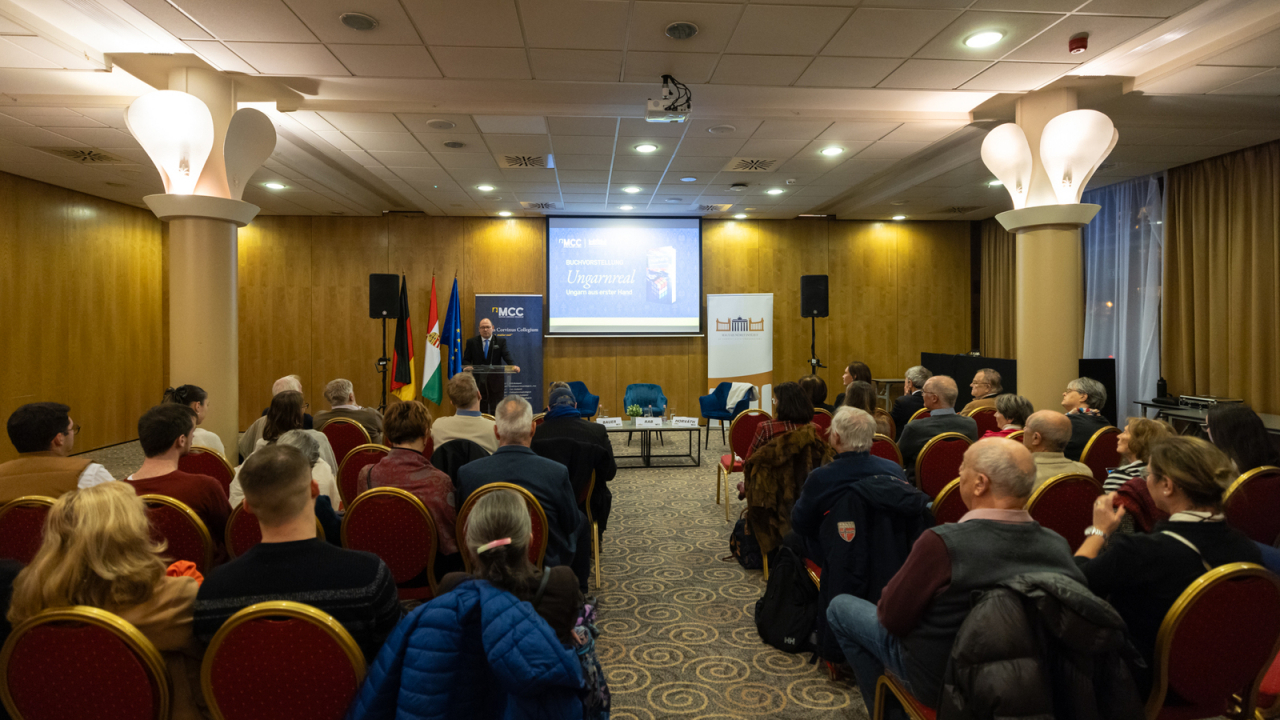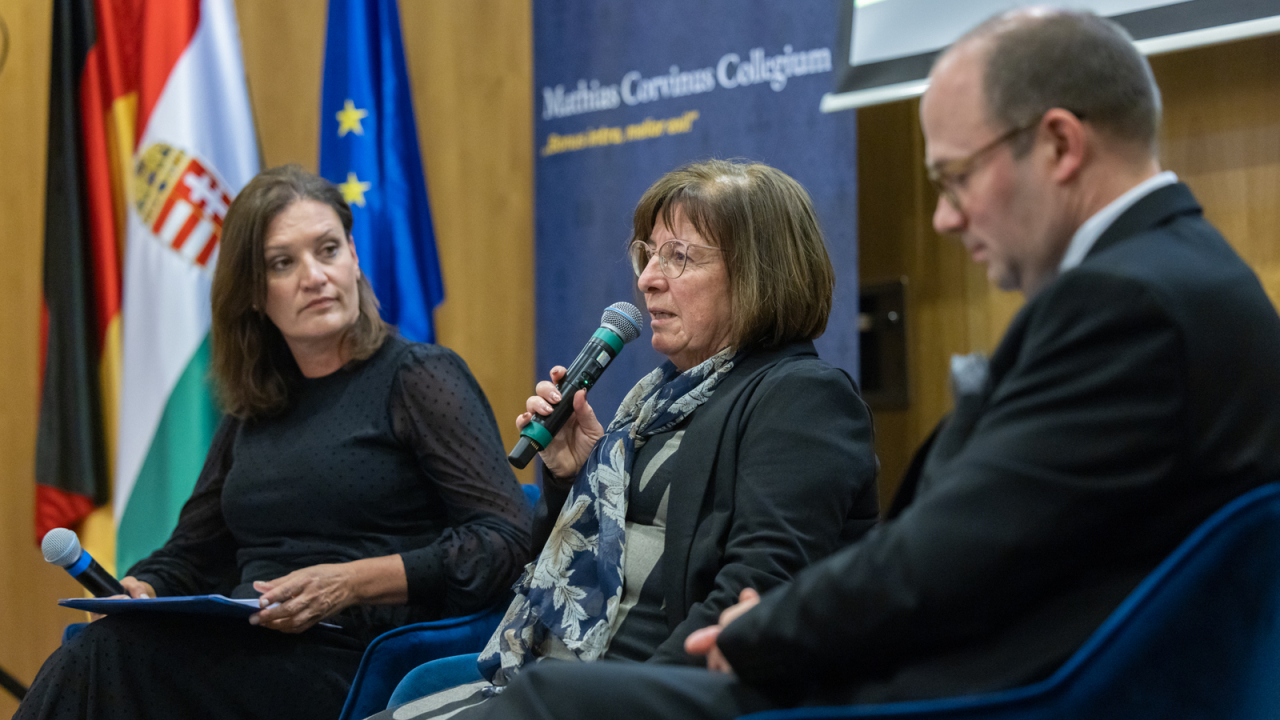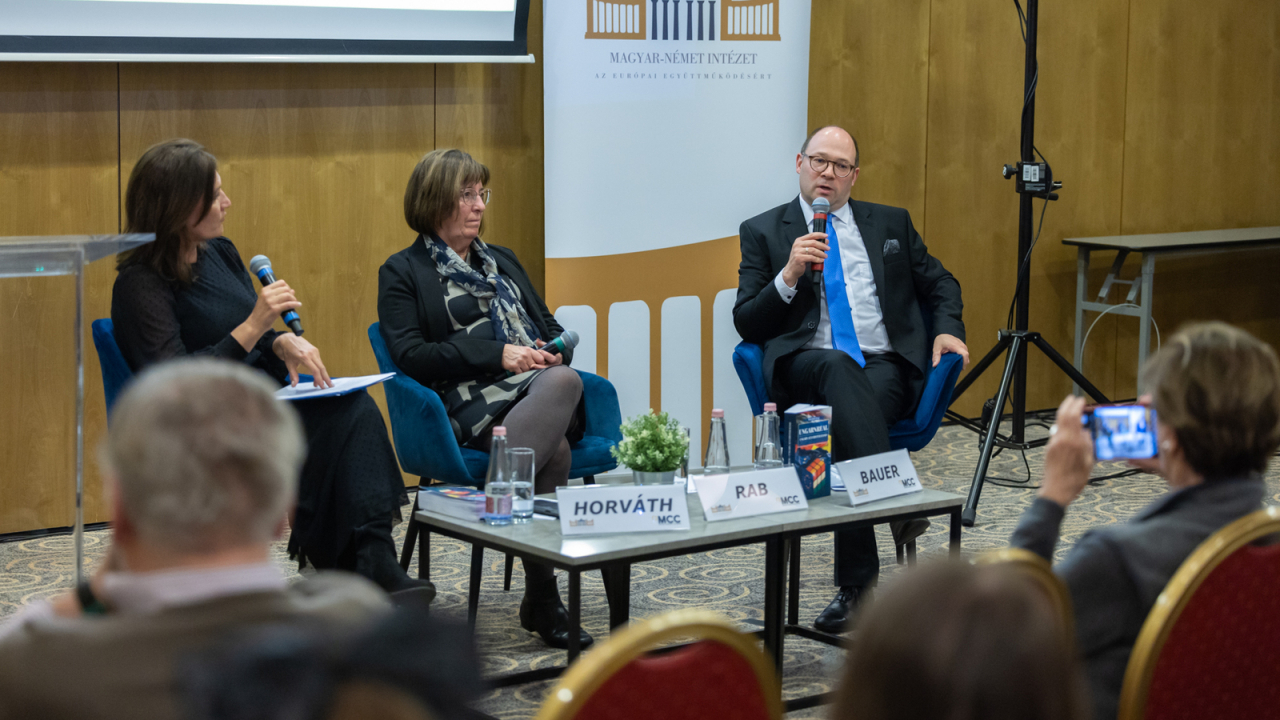Reading time: 2 minutes
Last Friday, the German-Hungarian Institute for European Cooperation hosted the launch of Irén Rab’s latest book, Ungarnreal. The event brought together the author, Bence Bauer, Director of the Institute, and Ágnes Horváth, editor at MTVA, who served as the moderator. The discussion revolved around the relationship between Hungary and Germany, and the unique lens through which Hungarian thought is presented.
Bence Bauer emphasized the shared mission: creating a platform to foster dialogue between Hungary and German-speaking regions. He highlighted the uniqueness of Ungarnreal, which showcases Hungary directly to German audiences through over 700 articles covering diverse aspects of the country. The new book, a collection of 70 articles by 40 authors, including voices from across the political spectrum, offers a multifaceted view of Hungary.
Irén Rab shared her goal of presenting Hungary’s politics, history, and mindset objectively, recognizing the challenges German audiences face in understanding Hungarian culture. She noted that German interpretations often reflect their societal issues, making it harder to grasp the Hungarian perspective.
Rab pointed out differences in how history is taught in Hungary and Germany. While Hungarian education emphasizes chronological order and interconnected events, German history education often lacks this structure, complicating students' understanding. She argued that history, when taught effectively, can serve as a guiding force, providing lessons for the present and future.
The concept of national identity was another key focus of the discussion. Rab highlighted how Hungary’s view of national identity emphasizes active community involvement, contrasting with Germany’s more inclusive and abstract interpretation. She described the Hungarian language as a "language of action," reflecting the collective mindset of the nation.
Bauer acknowledged the strong cultural ties between Hungary and Germany despite current political tensions. He noted that while the German government’s policies often clash with Hungarian public life, many within German society resonate with Hungary’s viewpoints. This alignment reflects a growing middle ground based on democratic values, offering hope for future collaboration.
The book includes a variety of political speeches, such as Ferenc Gyurcsány’s Őszöd speech and Viktor Orbán’s addresses, which provide insights into Hungary’s political landscape over the past 35 years. Rab explained that these inclusions help illustrate the nuances of Hungarian political thought and history.
As the event concluded, Rab reiterated Ungarnreal's mission: to authentically represent Hungary’s history, mindset, and politics, enabling German audiences to gain a deeper understanding of the nation.


